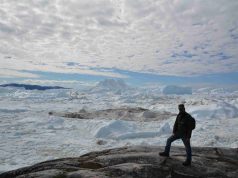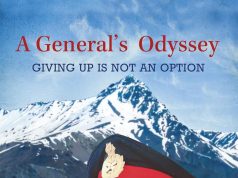 By Sunita Vijay
By Sunita Vijay
Once, Earth brimmed with balance – forests whispered undisturbed, rivers ran clear, and the skies were a canvas untainted by smog or smoke. But today, rising temperatures, fractured societies, wars, and natural calamities paint a far grimmer picture. It begs the question: have we passed the planet’s most harmonious phase? Perhaps Earth’s happiest days weren’t marked by grand achievements, but by quiet coexistence with nature, with one another, and within ourselves. If we have indeed outlived them, then the challenge now isn’t just survival, but the radical hope of restoration. Because the Earth may still have joy left, only if we choose to nurture it.
Earlier, we had fewer amenities but more happiness, more greenery and less concrete, smaller houses but bigger hearts, fewer medicines yet better health, less money but a deeper sense of meaning in life. There was less selfishness but more compassion, less greed but greater generosity.
Our relentless pursuit of material possessions has eroded these values. In the race to accumulate more, we have made everything else seem insignificant. Science and technology have certainly advanced, but they now struggle with overwhelming challenges – natural disasters with anthropogenic origins, manmade destruction, and rising terror threats. We often stand helpless in the face of these forces, largely because we are no longer in sync with nature.
On the one hand, we’ve developed sophisticated medical systems capable of curing many deadly diseases. On the other, we are slowly poisoning our bodies, through polluted air, chemical-laden food, toxic pesticides, vehicle emissions, microplastics, and the fine particulate matter suspended in the atmosphere due to relentless construction and poorly maintained roads. The balance is lost.
We are living longer but are stressed and wrestle with lifestyle ailments. Ironically, we work tirelessly, sometimes by fair means and sometimes not, only to spend that hard-earned money on safety, security, medical checkups, treatments, surgeries, and counselling, and show-off.
It feels, increasingly, like the world is cracking along multiple fault lines all at once: ecological, political, social, spiritual. Natural disasters are intensifying – the climate crisis is no longer a warning but a lived experience. Wars rage with new technologies and old hatreds. Communities are polarised, discourse is more rage than dialogue. Even places of learning – campuses – are echoing with anger, division, and sometimes violence.
Many environmental scientists and ecologists argue that Earth is leaving or has left its “best” phase, citing the severe planetary degradation caused by human activity. Ecological integrity is at its nadir. Human activities have profoundly altered nearly every ecosystem on Earth. A 2021 study in Frontiers in Forests and Global Change found that only about 2-3% of the Earth’s land surface remains ecologically intact, meaning it still has healthy populations of its original animals and undisturbed habitat from the year 1500 AD. There is a huge biodiversity loss. Climate destabilisation is a worrying issue. Resources are depleting. Humanity has exceeded the planet’s capacity to naturally regenerate resources. What it took thousands of years to form, we are consuming at a super-fast speed. Many of the planet’s systems have been permanently changed and will not return to a pre-industrial state. Some scientists consider these changes to be an irreversible threat to the persistence of civilisation.
Ironically, wherever humanity treads, it leaves a trail of destruction, whether it’s sacred pilgrimage sites, pristine mountain peaks, untouched forests, or even the vast unknowns of space. In our relentless pursuit of development and convenience, we have scarred the Earth in every direction: mining its depths for resources, carving roads through ancient ecosystems, and launching debris into orbit under the guise of exploration.
We have polluted the sacred, trampled the untouched, and turned nature’s harmony into chaos. From the Himalayas to the Amazon, from deep oceans to outer space, we’ve left behind plastic, smoke, concrete, and contamination – ugly footprints on what was once a beautiful, balanced planet. Our coming generation will curse us for the legacy we leave behind, a world burdened with problems they never created, yet are expected to fix. The ‘good old days’ may become nothing more than textbook chapters for them to read, rather than realities they ever experience.
In our quest for comfort and profit, we’ve accelerated global warming, triggered drastic climate shifts, and pushed glaciers to recede at alarming rates. The rivers rage not only with floodwaters but with fury. The forests burn not just with fire, but with despair. Nature is not reacting, it’s retaliating. And justifiably so. If we do not pause, reflect, and radically change course, the Earth will survive, but humanity may not.
Human history is full of cycles: light follows dark, and dark often precedes transformation. What’s unique now is how interconnected everything is. Our crises are global, and so are our solutions, if we choose to act. The future had always been uncertain, but it never felt so unclear as it seems now. The debate over whether civilisation is past its peak or on the cusp of its greatest phase highlights the profound uncertainty about our future. The ultimate trajectory of the planet will depend on humanity’s ability to navigate and mitigate the immense challenges created by our rapid expansion and resource consumption. So maybe the happy phase as we knew it is over. But that doesn’t mean joy, purpose, or hope are gone. It might mean we’re being asked to grow up, to move from comfort to courage.
If we consciously chose greed and brought ourselves to this alarming point, then the time has come to choose differently now to choose wisdom, restraint, and kindness towards Mother Earth. Only by allowing her to live can we hope to survive ourselves.







